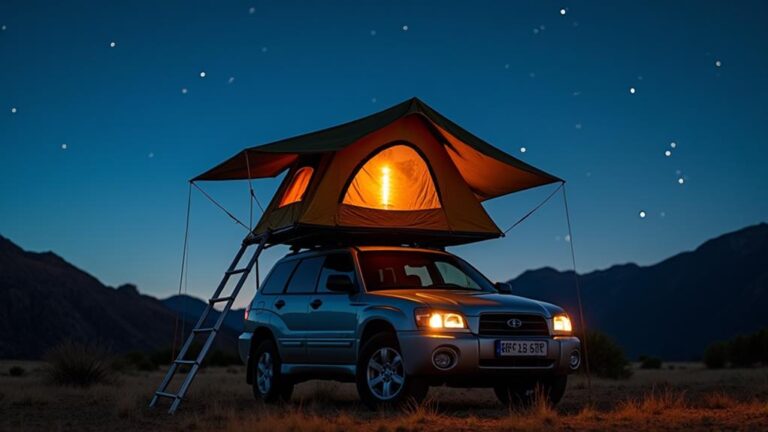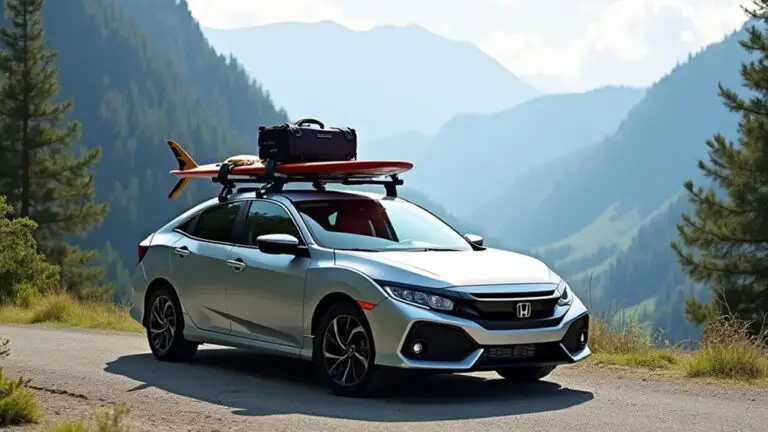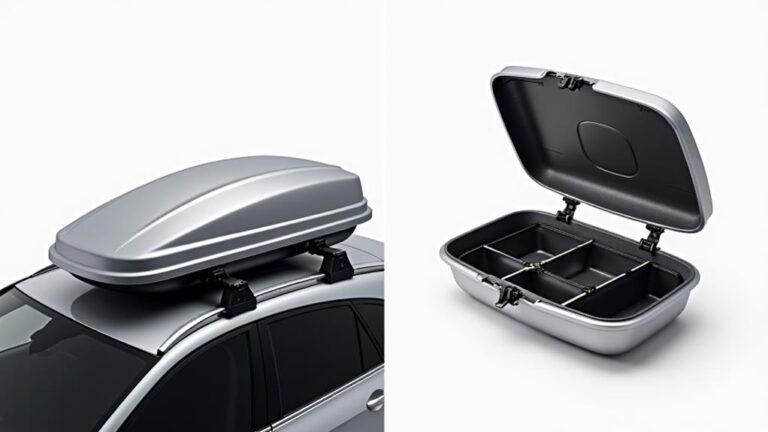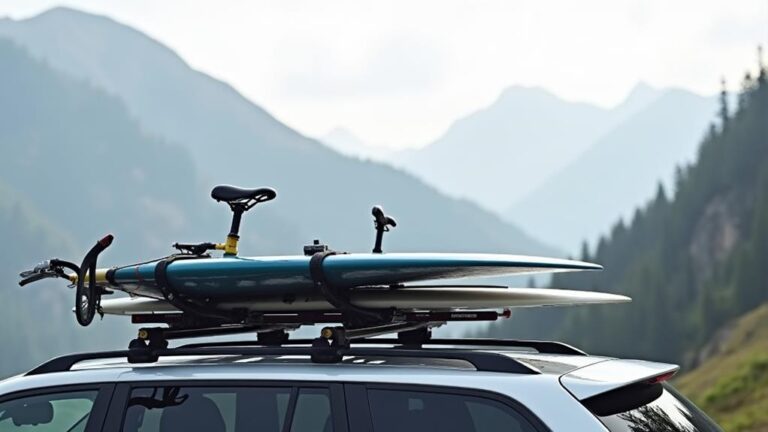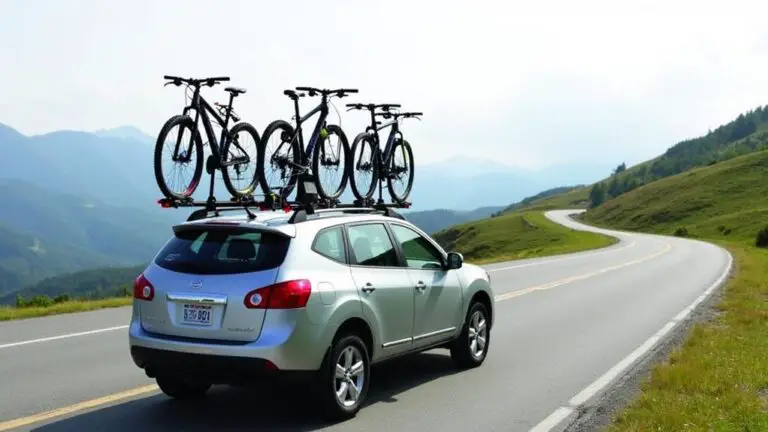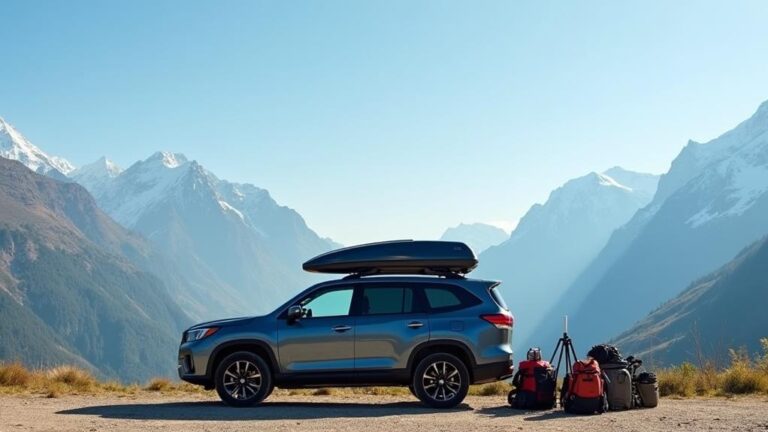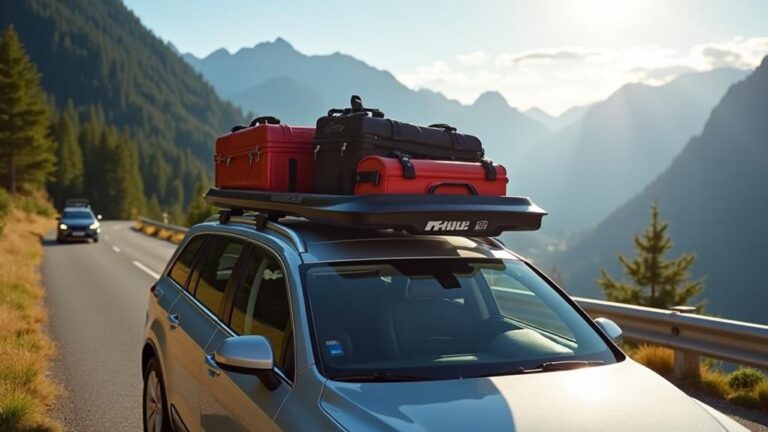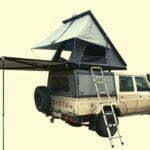If you've ever spent a chilly night in a rooftop tent, like the popular iKamper Skycamp model, you know how vital a reliable heater can be. When choosing the best heater for your rooftop tent, you'll want to ponder factors such as convenience, safety, and energy efficiency. Portable electric space heaters, propane heaters, and infrared tent heaters are popular options, each with their own set of benefits and drawbacks. But which one is right for you? As you explore your options, you'll need to weigh the pros and cons to guarantee a safe and warm camping experience.
Key Takeaways
- Consider portable electric space heaters for convenience, safety, and energy efficiency in rooftop tents.
- Match propane heaters' BTU output to the tent's insulation and size, ensuring proper ventilation.
- Infrared tent heaters offer targeted and efficient heating solutions with lower fire hazards.
- Look for safety features like overheat protection, tip-over protection, and carbon monoxide detection in any heater.
- Prioritize top-rated portable heaters with certifications from reputable organizations like CSA or UL.
Portable Electric Space Heaters
When it comes to heating a rooftop tent, convenience and safety are key considerations.
Portable electric space heaters are an excellent option for rooftop tent owners. These heaters are compact, lightweight, and easy to use.
You can choose from a variety of models, including cordless options that offer greater flexibility and convenience.
Cordless options are ideal for rooftop tents, as they eliminate the need for cables and power cords.
This reduces the risk of tripping hazards and electrical shock. Additionally, cordless heaters are often more compact and portable, making them easy to store and transport.
Compact designs are also a key feature of portable electric space heaters.
These heaters are designed to be small and compact, making them perfect for use in small spaces like rooftop tents.
They're also energy-efficient, using minimal power to heat your tent quickly and efficiently.
When choosing a portable electric space heater, consider the power output, safety features, and energy efficiency to guarantee you find the best model for your needs.
Propane Heaters for Tents
Several propane heaters for tents are available, each with its unique features and benefits.
Propane heaters offer several advantages for camping, including portability, ease of use, and high heat output.
However, when choosing a propane heater for your tent, you should consider a few key factors.
Some key considerations for propane heaters include:
- BTU Output: Look for a heater that provides the right amount of heat for your tent size. A higher BTU output doesn't always mean better; it is vital to match the heater's output to your tent's insulation and size.
- Ventilation: Make certain your tent has proper ventilation to prevent carbon monoxide buildup. This is critical when using a propane heater, as it can produce toxic fumes.
- Safety Features: Choose a heater with built-in safety features, such as tip-over protection and automatic shut-off.
- Fuel Efficiency: Consider a heater with a high fuel efficiency rating to minimize propane consumption and reduce waste.
Best Infrared Tent Heaters
Infrared tent heaters offer a distinct alternative to propane heaters, providing a more targeted and efficient heating solution for your rooftop tent.
They achieve this by converting electrical energy directly into radiant heat, which is then absorbed by surrounding objects, including you and your tent. As a result, infrared heaters are ideal for small, enclosed spaces like rooftop tents.
When choosing an infrared tent heater for winter camping, consider the power output, typically measured in watts.
A higher wattage rating generally corresponds to more heat, but also increases power consumption. Look for a heater with adjustable heat settings to fine-tune the temperature and conserve energy.
Infrared heaters are often designed for silent operation, making them suitable for nighttime use in a rooftop tent.
They also tend to have a lower risk of overheating and reduced fire hazards compared to other heating methods. However, crucial to remember is to follow the manufacturer's guidelines for safe use and placement within your tent.
Safe and Reliable Options
Safe and Reliable Options
What safety features should you look for in a reliable infrared tent heater?
When it comes to winter camping, having a safe and reliable heating solution is vital for a comfortable and enjoyable experience.
Infrared tent heaters are popular off-grid solutions for rooftop tents, but vital to examine safety features to avoid accidents.
When shopping for an infrared tent heater, look for the following safety features:
- Overheat protection: A built-in thermostat that shuts off the heater in case of overheating.
- Tip-over protection: A feature that automatically turns off the heater if it's knocked over.
- Carbon monoxide detection: A sensor that detects CO levels and shuts off the heater if they become too high.
- Certifications: Look for certifications from reputable organizations, such as CSA or UL, which verify the heater meets safety standards.
Top Rated Portable Heaters
You've found a reliable infrared tent heater with the necessary safety features. Now, it's time to look at top-rated portable heaters that can be used for winter camping.
These portable heaters are designed to be compact, lightweight, and energy-efficient, making them ideal for rooftop tents.
When choosing a portable heater, consider the power output, typically measured in watts or BTUs. A higher power output means more heat, but also increased energy consumption.
Look for heaters with adjustable heat settings to customize the temperature to your needs.
Portability is also vital for winter camping.
Opt for heaters with carrying handles or compact designs that can be easily stowed away in your rooftop tent.
Some popular portable heaters for rooftop tents include propane-powered models, electric heaters, and battery-powered options.
When selecting a portable heater, prioritize cold weather gear that can withstand harsh winter conditions.
Consider the heater's durability, weather resistance, and safety features, such as overheat protection and tip-over shut-off.
Frequently Asked Questions
Can Rooftop Tent Heaters Be Used in Extreme Weather Conditions?
When camping in freezing climates or extreme altitudes, you can use portable heaters, but they must be specially designed for outdoor use and be able to withstand harsh weather conditions to guarantee safe operation.
Are Rooftop Tent Heaters Compatible With Solar-Powered Systems?
When integrating solar-powered systems, you'll likely prioritize energy efficiency and power autonomy. Fortunately, many rooftop tent heaters are designed to be compatible, using low-wattage elements that minimize energy consumption and maintain power autonomy.
Can I Use a Rooftop Tent Heater While Camping in the Rain?
When camping in the rain, you can use a rooftop tent heater, but verify it's designed with rain safety features and has adequate moisture protection to prevent electrical shock or fire hazards.
What Is the Average Lifespan of a Rooftop Tent Heater?
When using a portable heater, you can expect an average lifespan of 2-5 years, depending on heater maintenance and usage. Proper care, including cleaning and storage, combined with adequate tent insulation, helps extend its lifespan.
Are Rooftop Tent Heaters Allowed in National Parks and Forests?
You're a million times more likely to get lost in park rules than wilderness. Check the Park rules and Campsite restrictions where you'll be camping, as some areas may prohibit or restrict portable heater use.
Conclusion
You've found the perfect heater for your rooftop tent. Don't let concerns about battery drain or fuel consumption hold you back – most models are designed to be energy-efficient and portable. With features like overheat protection and carbon monoxide detection, you can stay warm and safe. Whether you choose electric, propane, or infrared, rest assured that these top-rated heaters will keep you cozy on your next adventure without breaking the bank or weighing you down.
